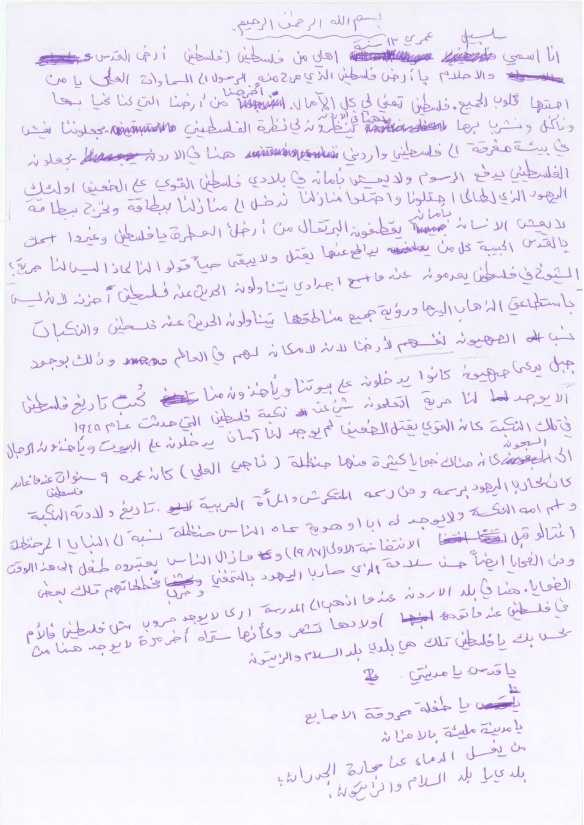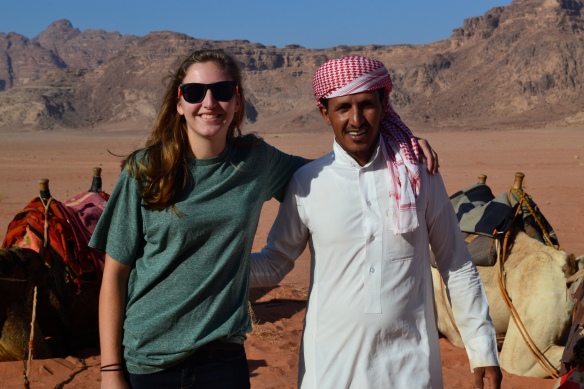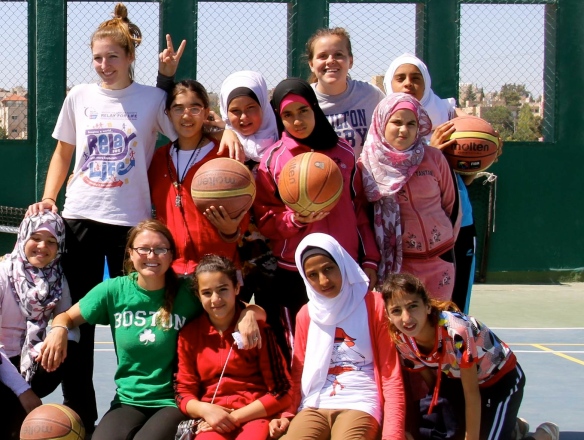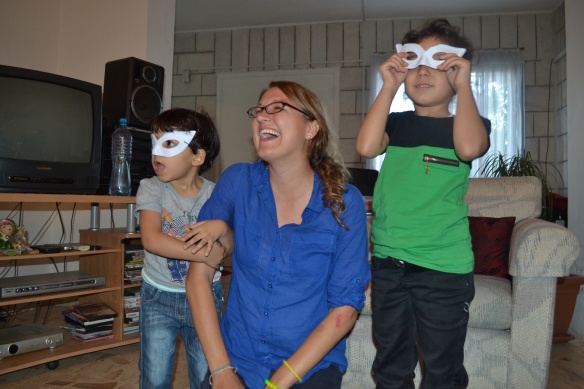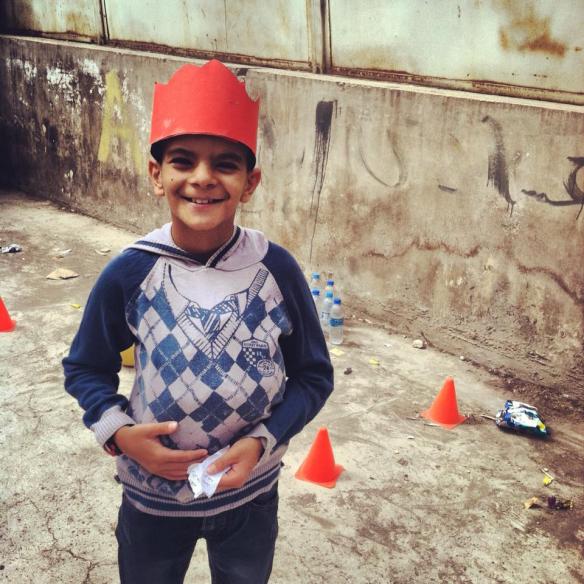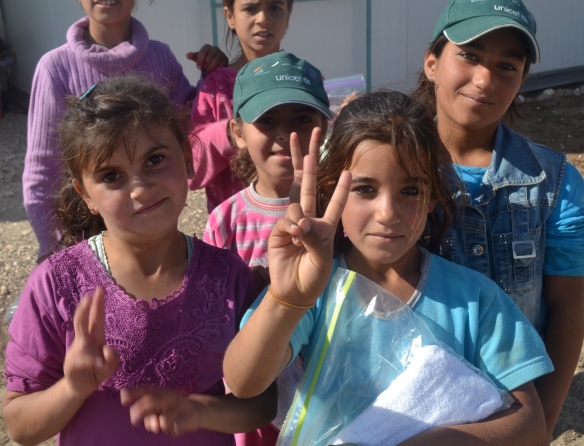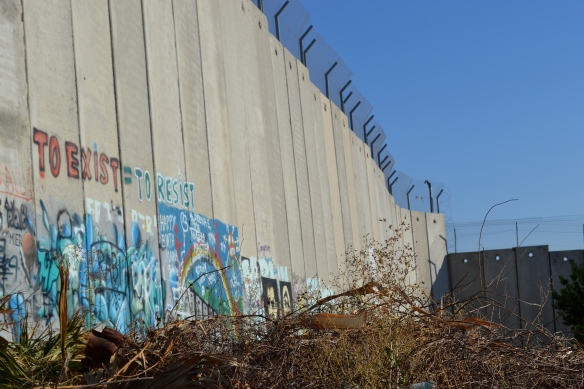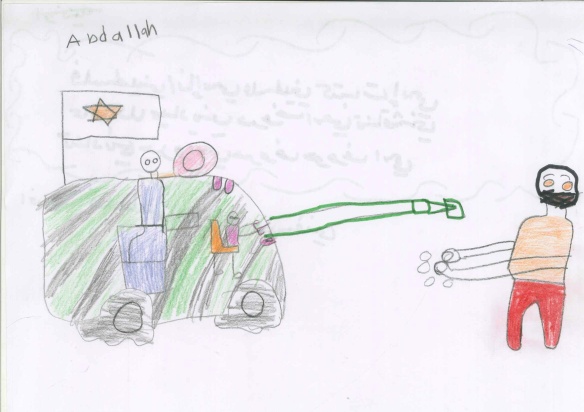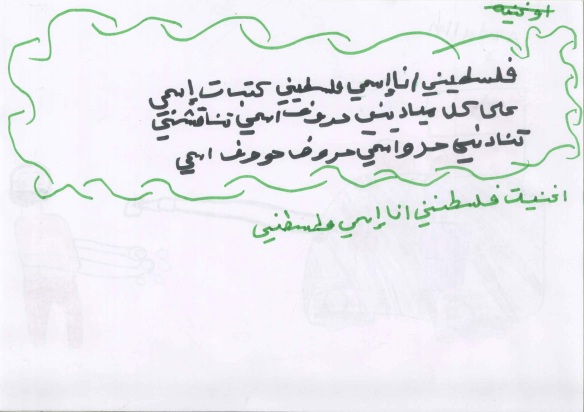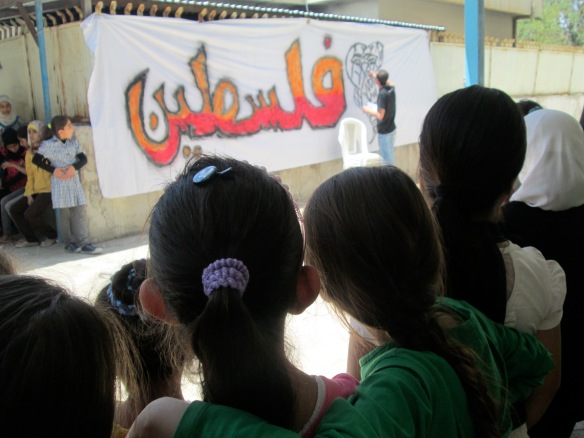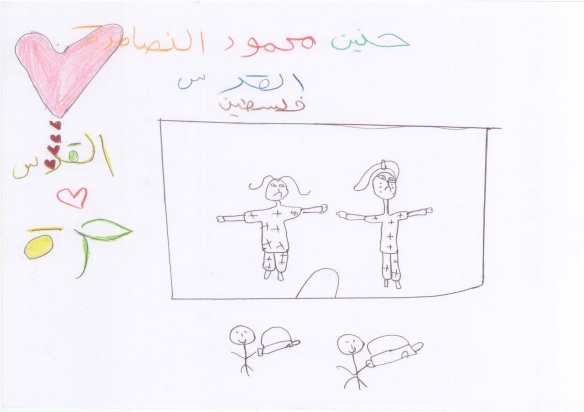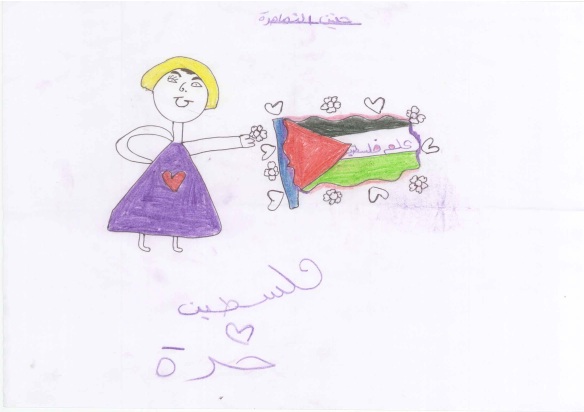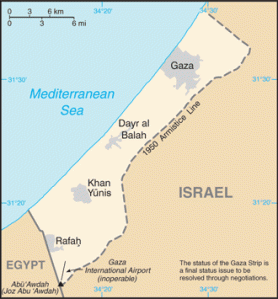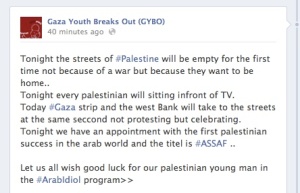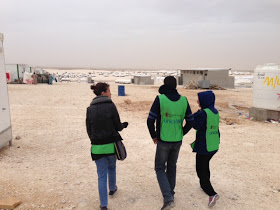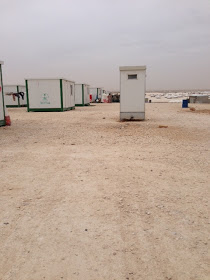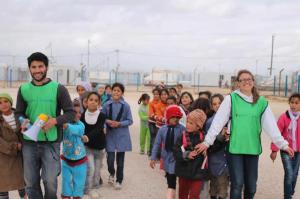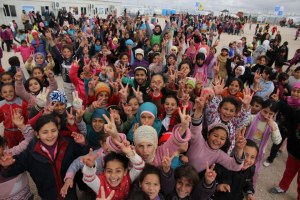My name is Selselbeel and I am 13 years old. My family is from Palestine [Palestine, land of Jerusalem and dreams; oh the land of Palestine, from which the Prophet ascended to the skies above; you who all hearts love]. Palestine means all hope to me.
We were forced out of our land, where we used to live, eat, and drink. Here in Jordan, we are looked at as Palestinians. They make us live in a disgusting environment (Palestinians and Jordanians). Here in Jordan, they make Palestinians pay fees and even in my country, Palestine, people do not live in safety. In my country, where the strong control the weak, the Israelis have always occupied us and occupied our homes. We enter our home by permit; we leave our homes by permit. One doesn’t live with security. They uproot orange trees from your sweet land, oh Palestine, and they change your name.
Oh Jerusalem, our beloved, whoever defends you is killed; they don’t remain alive. Tell us, why don’t we have freedom?
The elderly in Palestine are assassinated. When I hear my elders talk about Palestine, I become sad because I cannot go there and see all the places. They talk about Palestine and all the crises. (The Israelis) have named it after themselves; they’ve said it has been theirs since the beginning.
(They’ve done this) because they have no place, no country of their own to live in; they’ve done this because of the mountain, which they call Mount Zion. They used to break into our homes; they take from us the books of Palestinian history. There is no freedom for us.
Do you know anything about Palestine’s Nakba, which happened in 1948? And also (do you know) that the Nakba was the strong killing the weak? There was no security for us. They broke into our homes and took the men to prisons.
There were many victims. Among them was Handala (Naji Ali). He was 9 years old when we left Palestine. He was fighting Israelis with drawing and art. The date he was born is the Nakba, and his mothers name is the Nakba; he does not have a father or an identity. People named him Handala (bitterness). He was assassinated before the first Intifada (1987) and people still consider him a child until this time.
Another of the victims was Hassan Salama, who fought the Israelis with song, and destroyed their schemes. Those are some of the victims.
Here in Jordan, when I go to school, I see there are no wars like Palestine’s. And (I see that) the mother in Palestine, when she says goodbye to her children, feels like she will be seeing them for the last time.
(Here in Jordan), there is no one who cares about you, oh Palestine, who is my country, country of peace and olives.
Oh Jerusaleum, oh my city, oh child of burnt fingers,
Oh city that is full of sorrows,
Who will wash the blood out of the stones of your walls?
My country, country, of peace and olives.
